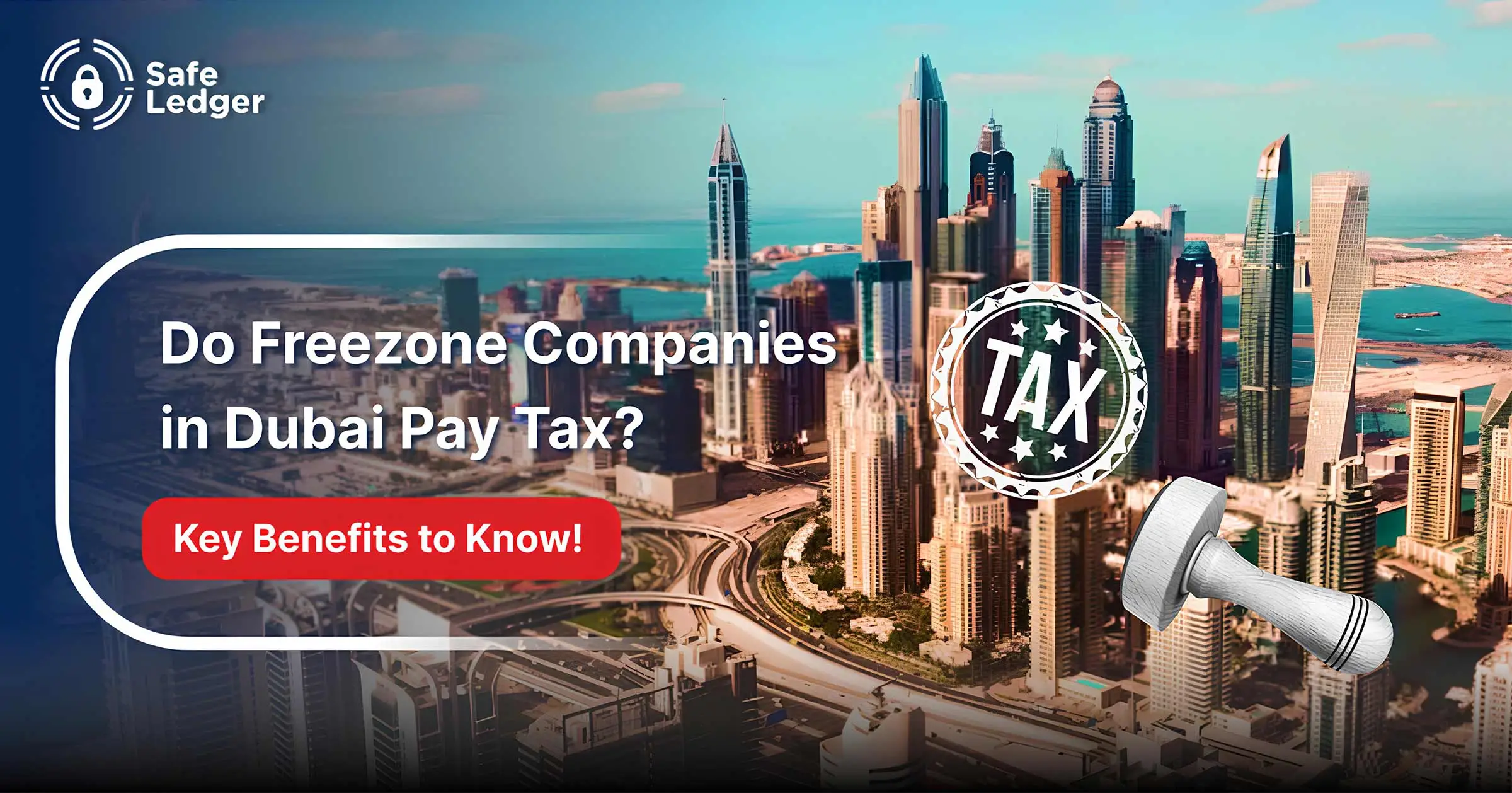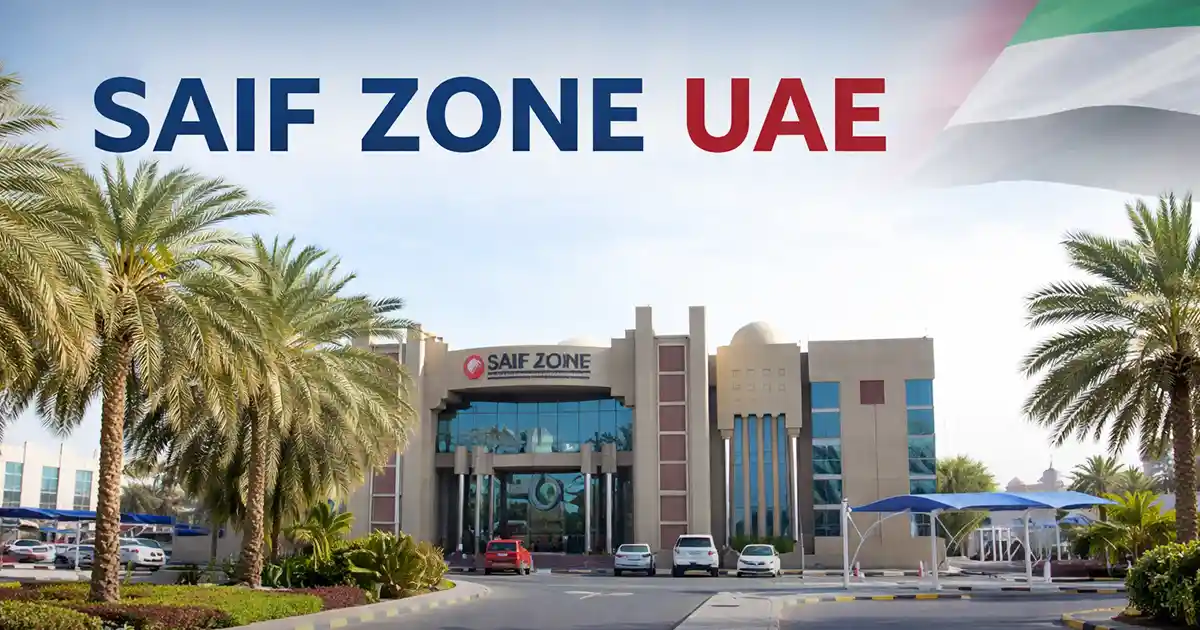The UAE’s new corporate tax law marks a major shift, aligning the country’s taxation framework with global standards and enhancing transparency for businesses
The law introduced a progressive tax rate
- 0% tax rate: Companies with taxable income up to AED 375,000 pay zero tax. This rate supports small businesses and startups.
- 9% tax rate: Companies with taxable income over AED 375,000 pay a 9% Dubai company tax rate.
For free zone companies, only Qualifying Free Zone Persons (QFZPs) can benefit from 0% tax on qualifying income. They must also submit company tax online to maintain compliance. They do not automatically get the AED 375,000 small-business exemption that mainland companies can use.
This tax applies to all mainland companies and some free zone companies. It is important to know which rules apply to your business and income.
Free Zone Companies and Corporate Tax
Free zone companies in the UAE no longer enjoy automatic tax exemptions. Under the new corporate tax law, these businesses can benefit from a 0% corporate tax rate, but only if they meet the criteria to become a Qualifying Free Zone Person (QFZP).
Becoming a QFZP is not automatic and requires the company to follow specific rules set by the authorities. These rules are designed to ensure that the business has a genuine presence in the free zone and conducts its main activities from there. Companies must maintain a physical office, have employees, and show that their core business operations are actually carried out within the free zone.
Even when a company qualifies, certain types of income, such as earnings from non-qualifying activities or business conducted in the mainland UAE, may still be taxed at the standard 9% rate. Therefore, understanding these rules and staying compliant is essential. Failing to meet QFZP conditions can lead to losing the 0% tax benefit, which could significantly increase the company’s overall tax liability.
Qualifying Free Zone Person—Definition
A company becomes a Qualifying Free Zone Person if it meets a set of criteria. The company must:
- Maintain Adequate Substance: The company must have a real business presence in the free zone. This includes having a physical office, employees, and conducting its core business activities from there. The FTA wants to see a genuine operation, not just a license for tax purposes.
- Derive Qualifying Income: The company’s primary income must come from “Qualifying Activities.” These activities include trading goods with other free zone or international companies, manufacturing products, providing logistics services, or offering headquarters and support services.
- Not Exceed De-Minimis Threshold: Income from non-qualifying activities must stay below AED 5 million or 5% of total revenue, whichever is lower. If it goes above this limit, the company loses its QFZP status for that tax year and the next four years, and all its income during this time will be taxed at the standard corporate tax rates.
- Comply with Transfer Pricing Rules: The company must deal with related parties at “arm’s length,” meaning transactions should be at fair market value.
- File a Corporate Tax Return: The company must register with the FTA and file a company tax report on time.
- Prepare Audited Financial Statements: The company must maintain audited financial records.
The FTA has stated that failing to meet these conditions for one year can lead to losing the 0% tax benefit for the next four years.
What Income Is Taxed at 9%?
Even a Qualifying Free Zone Person can have some income taxed at a 9% rate. This happens when the income is from “Excluded Activities” or when it comes from non-qualifying activities that exceed the “de-minimis” threshold.
- Non-Qualifying Activities: Income from these activities is always taxed at 9%. They include transactions with individuals and income from the mainland UAE.
- Mainland UAE Income: Income a free zone company earns from the mainland is generally subject to the standard 9% tax rate. The income is taxed at 9% even if a free zone company works with a mainland branch.
- Exceeding Thresholds: If a company’s income from non-qualifying activities goes above the de-minimis threshold (AED 5 million or 5% of total revenue), the company loses its Qualifying Free Zone Person status for the entire tax period. All of its income is then taxed at the standard 9% rate.
Important Points for Businesses in Free Zones
Here are some key points free zone companies should keep in mind to stay compliant and protect their 0% tax benefit.
- Show Real Operations: Just having a mailbox isn’t enough. The FTA and recent ministerial decisions expect companies to have real business activities, including an office, staff, and ongoing operations.
- Keep Accounting Separate: Free zone companies should clearly separate qualifying and non-qualifying income. This makes it easier to prepare accurate corporate tax returns and apply the 0% tax rate correctly.
- Large Multinationals: Very large multinational companies should note the 15% global minimum tax (Pillar Two). This is separate from the free zone rules and may apply on top of UAE corporate tax.
- Seek Expert Advice: The rules for Qualifying Free Zone Persons are detailed, and recent clarifications (2024–2025) add complexity. A tax advisor familiar with UAE corporate tax and free zone structures can help ensure compliance and confirm eligibility for the 0% tax rate.





